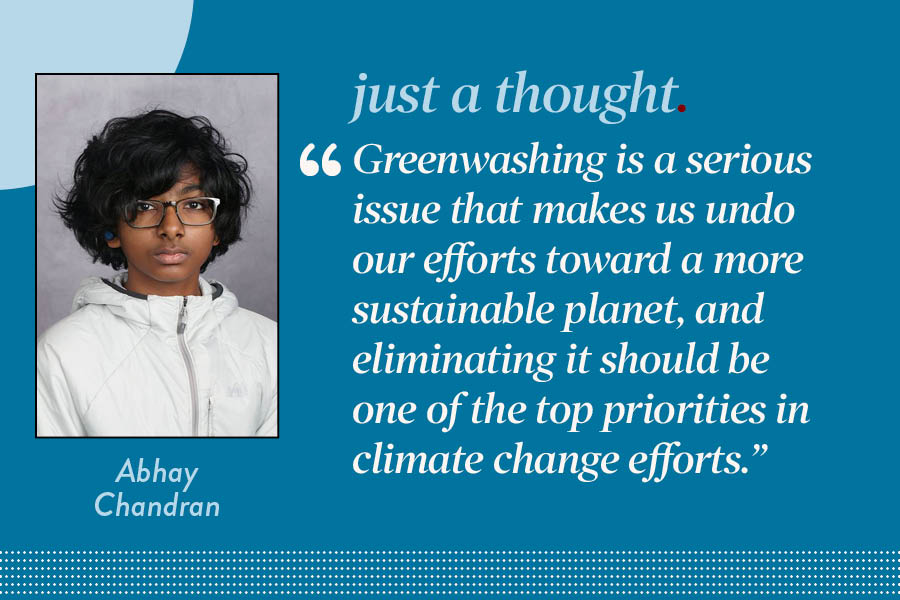Greenwashing is the practice in which companies, in an attempt to increase sales or decrease controversy, will try to convince customers that the company and/or their product is less harmful toward the environment than it actually is.
Greenwashing is a serious issue that makes us unknowingly undo our efforts toward a more sustainable planet, and eliminating it should be one of the top priorities in climate change efforts.
While some may claim that greenwashing is a more minor issue that does less damage than our individual carbon footprints, we will continue to unknowingly contribute to global warming unless we, as stated by the United Nations secretary general, leave “no room for back-sliders, greenwashers, blame-shifters or repackaging of announcements of previous years.”
According to the Harvard Business Review, “Customers, while punishing companies they thought were greenwashing, gave a pass to those whose brand they held in high regard,” often allowing larger companies to get past accusations of greenwashing without losing significant profits.
In 2019 and 2018, respectively, McDonalds and Starbucks claimed to promote recycling by replacing their plastic straws with either paper straws or “sippy cups,” claiming that the change was an effort to help the environment, but the replacements for the traditional straws are still nonrecyclable may pose additional harm toward the environment.
By prioritizing the elimination of issues like greenwashing, we will be able to genuinely approach net-zero emissions, making far more progress since we will be able to hold companies accountable for the pledges they make and the environmental harm they cause. Since the best way to force companies to change is by damaging their profits, you can help by learning about common greenwashing tactics and how to avoid funding companies who utilize them.





















































